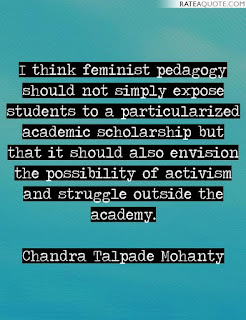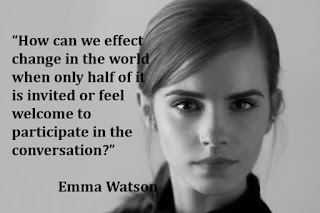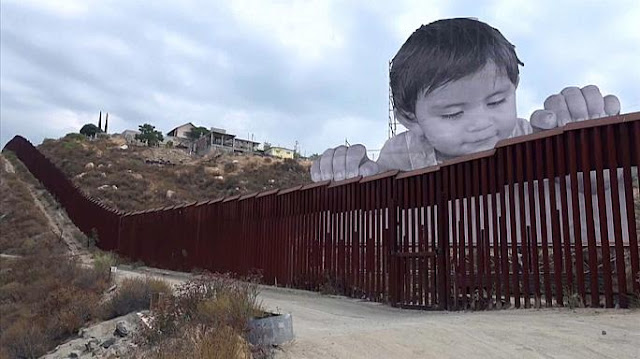Criticism and Change
I think the fact Mohanty revisits her
essay "Under Western Eyes" while taking into account others’ criticisms
says a lot about her character. It is very apparent that Mohanty is passionate
about her work and wants to evoke collective criticism to which she acceptingly
includes in her revision. I am fascinated by how Mohanty revisits her essay and
considers how things in society have or have not changed since the essay was
published. I think it is important to note that although Mohanty revises her
essay she has no regrets about writing it. Mohanty attributes the confusion and
misunderstanding of her essay as a cause of her “postmodernist” beliefs.
Mohanty’s primary concern is to emphasize the importance of seeing connections between local and universal. Her arguments are similar to Lorde’s in that she wants people to be aware of their differences and view them as a connecting factor not a separating one. while Mohanty makes certain changes to the language in her previous essay, the most prominent change made was including native or indigenous struggles. She does so by using more inclusive language such as "One-Thirds/Two-Thirds Worlds". Mohanty's quote, "It is more necessary to look up- ward—colonized peoples must know themselves and the colonizer", reminds me of what we discussed in class when talking about colonization and who are the colonizers vs. the ones being colonized.
Mohanty’s primary concern is to emphasize the importance of seeing connections between local and universal. Her arguments are similar to Lorde’s in that she wants people to be aware of their differences and view them as a connecting factor not a separating one. while Mohanty makes certain changes to the language in her previous essay, the most prominent change made was including native or indigenous struggles. She does so by using more inclusive language such as "One-Thirds/Two-Thirds Worlds". Mohanty's quote, "It is more necessary to look up- ward—colonized peoples must know themselves and the colonizer", reminds me of what we discussed in class when talking about colonization and who are the colonizers vs. the ones being colonized.
This was also one of the most challenging readings so far and I don’t
quite get the full concept of her essay, however, her prologue helped to understand
the gist of her original essay. I think it would have been helpful to read the
first essay and then this one just to get a deeper understanding of the changes
that were made. I also think it would have been a cool experiment to come up
with our own criticisms first and changes we would make and then compare them
to her revisited essay to see if any of the changes were made.
- Jane B




Comments
Post a Comment